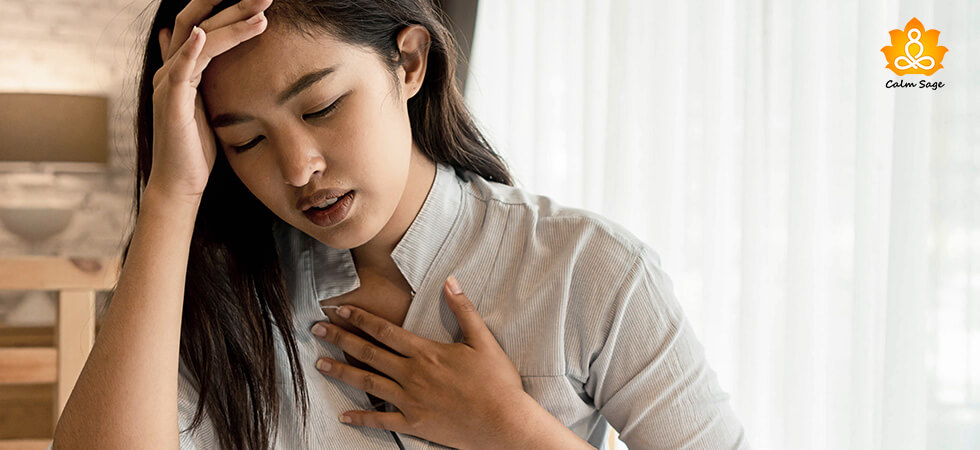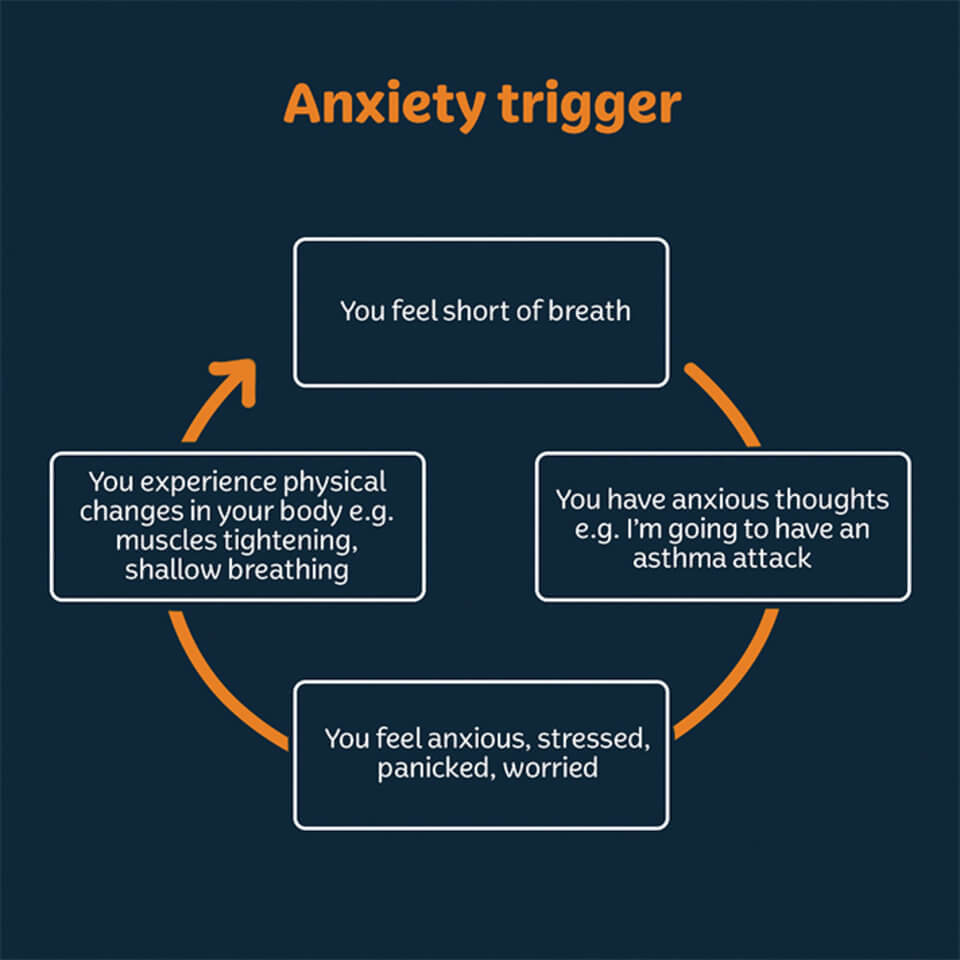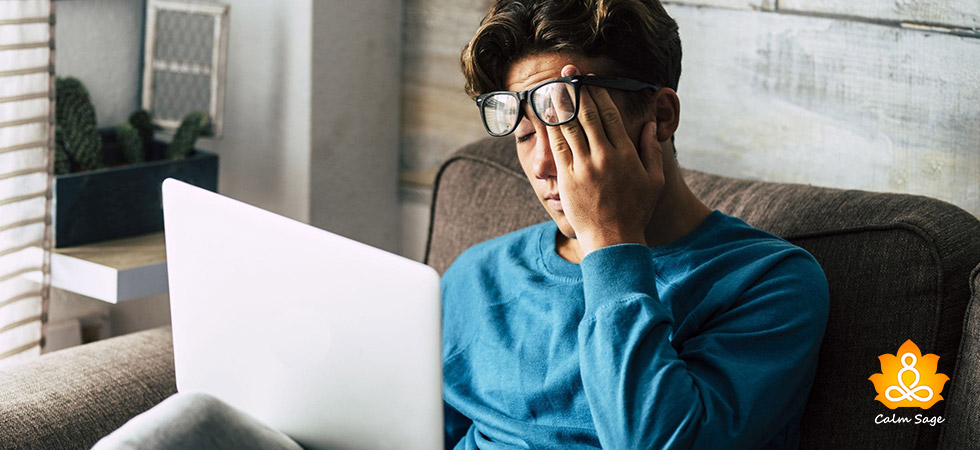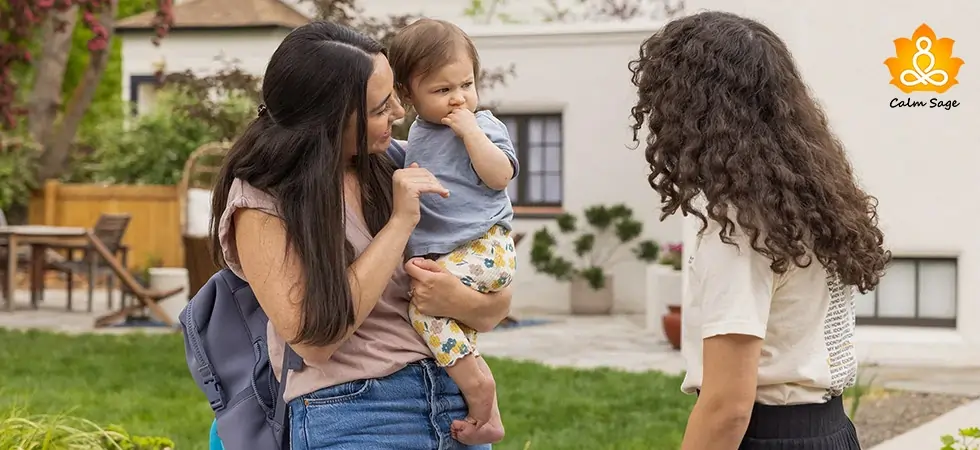Can Anxiety Cause Shortness Of Breath? Understanding Its Symptoms & What To Do

What you struggle with during your anxiety attacks or episodes will be way different than what I or someone else would experience. The triggers, the symptoms, and even the causes of anxiety differ from person to person.
But one symptom that remains common when they experience anxiety is shortness of breath or breathlessness.
Anxiety and shortness of breath are related and as one of the common symptoms of anxiety, breathlessness can be concerning but not downright harmful. It usually disappears as the last tendrils of anxiety go away.
In this article, we’ll explore the correlation between anxiety and shortness of breath, understanding its causes, symptoms, and what you can do to reduce breathlessness when you feel anxious.
Anxiety And Breathlessness
Experiencing breathlessness during an anxiety attack is common and it can be referred to as dyspnea anxiety. Shortness of breath can feel scary, but it is the most commonly noticed symptom of anxiety, anxiety attack, or a panic attack.
While it is possible to experience dyspnea from a physical health concern, it is not uncommon for this condition of breathlessness to affect our cognitive health too.
Whereas anxiety can cause dyspnea or shortness of breath along with other physical and mental symptoms, it’s important to recognize that breathlessness caused by other health conditions can also cause anxiety.
[Related Read: Panic Attack vs Anxiety Attack: Know The Difference]
Understanding Its Symptoms
Generalized anxiety disorder (GAD) is one of the most common anxiety disorders affecting people around the globe.
When we feel anxious, we often experience restlessness, irritability, loss of focus, increased heart rate, among other things. In many cases, anxiety symptoms can include:
- Shortness of breath
- Rapid shallow breaths or hyperventilation
- Sweating
- Chest pains
- Muscle tension
- Trembling and shaking
- Dizziness
- Nausea
Anxiety and high-level of stress can trigger our fight-or-flight response. Our body’s response to a potential threat causes our brains to either fight back or run from the threat. This response can trigger an increase in heart rate, increase in blood pressure, and – of course – shortness of breath.
But, how to tell if shortness of breath is from anxiety?

Shortness of breath and the other symptoms that we experience during the fight-or-flight response is what happens when our body is trying to protect itself from a potential threat. Sure, you might not be running to save your life during an anxiety attack but your body will, nevertheless, respond as such.
Shortness of breath can cause tightening in your chest, rapid breathing, or hyperventilation as your muscles tighten and try to get more oxygen into your body, your heart rate increases as your body prepares for an attack.
All the above symptoms I just mentioned are a few normal responses that our body makes to protect us from threats.
You might not be involved in a high-speed car chase but your body will still react like you are even if being in a crowded restaurant might’ve triggered your anxiety.
Note: People who experience frequent panic attacks may also experience shortness of breath although a panic attack may cause you to experience severe anxiety symptoms that may also feel like having a heart attack.
If you’re experiencing symptoms of panic disorder, it is recommended you seek immediate professional help.
Is There A Cure For Dyspnea?
When you’re already experiencing shortness of breath, is it safe to say to focus on your breathing?
Seems kind of counterproductive, doesn’t it?
However, the best way to get your breathing back to normal is to focus on breathing. Diaphragmatic breathing, often recommended by professionals, is a technique that can help slow your breathing and decrease the need to draw in more oxygen.
To practice diaphragmatic breathing, you can:
- Sit on a chair or lie flat on your back with a pillow under your head.
- Place one hand on your chest and the other hand on your stomach. This will help you get your focus on your diaphragm as you breathe.
- Breathe in through your nose so your stomach moves with each inhale.
- Tighten your stomach muscles, and with an exhale, let your stomach fall inward.
- Continue to breathe like this for a few minutes until your breath returns to normal. Make sure your stomach rises and falls with each inhale and exhale.
You can also try other breathing exercises such as:
- Box breathing
- Guided imagery
- Progressive muscle relaxation
There are other anxiety-relieving exercises you can try to help calm your nerves and reduce the symptoms of anxiety:
- Grounding techniques
- Mindful distractions
- Self-talk
- Meditation
- Mindfulness exercises
- Yoga
- Physical exercise
- Drinking soothing beverages
- Listening to relaxing music
Learning the symptoms of your anxiety can help you prepare for it before your breathlessness turns into a full-blown anxiety attack. Focusing on your breathing before your anxiety hits can help you prevent a severe attack.
If the above techniques don’t help you in the long run, you can always consult a professional. A therapist can help you learn effective ways to control your symptoms with cognitive-behavioral therapy or psychodynamic psychotherapy.
The best way to prevent shortness of breath from affecting you is to learn your triggers and prepare beforehand. Just as you would for any emergency. You can write down the sensations and triggers to keep a track of your symptoms. Or you can use these anxiety journals to help you.
Anxiety attacks can’t severely affect your physical health but they can affect your cognitive functioning. If you’re worried about your physical health, you can consult a physician for a formal diagnosis.
I hope the above information helped answer the question; Can Anxiety Cause Shortness Of Breath? You can comment below your thoughts or you can write to us at info@calmsage.com. For more, you can follow us on social media.
Take Care! Stay Safe!




















